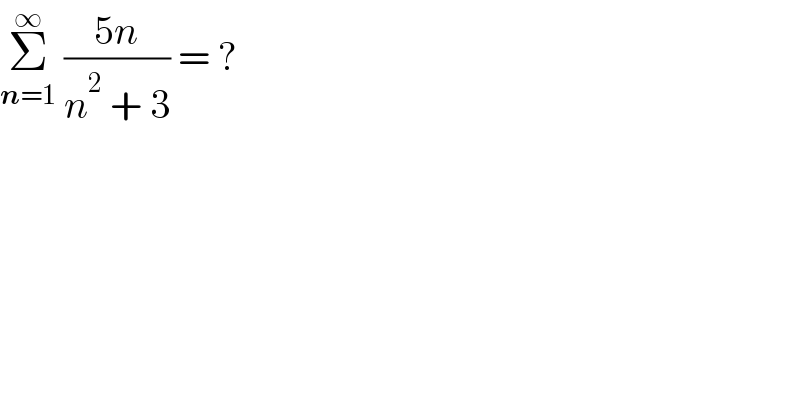
Question Number 144190 by mathdanisur last updated on 22/Jun/21

$$\underset{\boldsymbol{{n}}=\mathrm{1}} {\overset{\infty} {\sum}}\:\frac{\mathrm{5}{n}}{{n}^{\mathrm{2}} \:+\:\mathrm{3}}\:=\:? \\ $$
Answered by mathmax by abdo last updated on 23/Jun/21

$$\mathrm{this}\:\mathrm{serie}\:\mathrm{is}\:\mathrm{divergent}\:\mathrm{due}\:\mathrm{to}\:\frac{\mathrm{5n}}{\mathrm{n}^{\mathrm{2}} \:+\mathrm{3}}\sim\frac{\mathrm{5}}{\mathrm{n}} \\ $$
Commented by mathdanisur last updated on 23/Jun/21

$${Sir},\:\underset{{n}=\mathrm{1}} {\overset{\infty} {\sum}}\frac{\mathrm{5}{n}}{{n}^{\mathrm{2}} +\mathrm{3}}\:=\:\underset{\mathrm{1}} {\overset{\infty} {\int}}\frac{\mathrm{5}{x}}{{x}^{\mathrm{2}} +\mathrm{3}}{dx}\:.? \\ $$
